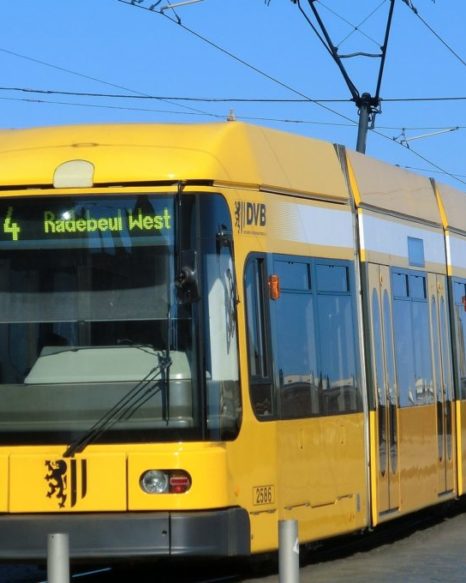Prof. Dr. Sophia Becker, Leiterin des Fachgebiets Nachhaltige Mobilität und transdisziplinäre Forschungsmethoden an der Technischen Universität Berlin, nahm am 19.01.2021 auf Einladung der Fraktion DIE LINKE. als Sachverständige an der Anhörung des...
Autokorrektur - the Quarks Podcast for better mobility by WDR deals in its current edition with what can be discovered in terms of mobility in 2021.
Dr Sophia Becker from TU Berlin featured in the science programme “Planet Wissen” as an expert on the topic of aggression in road traffic.
The Tagesspiegel reports in detail on the temporary city square in Berlin-Charlottenburg, which was set up as part of a real-world experiment carried out by EXPERI. In addition to the project coordinator Julia Jarass, numerous residents also have their say.
In the local newsletter “LEUTE”, the “Tagesspiegel” reports on the temporary city square in Berlin-Charlottenburg, which was set up as part of a real-world experiment conducted by EXPERI.
In a short article, the Berliner Morgenpost informs about the installation of a temporary city square in Berlin-Charlottenburg as part of a real-world experiment conducted by EXPERI.
In the rbb Wissenszeit series, Sophia Becker features as a mobility expert in the programme "Verzichten und trotzdem Genießen?" [Renounce and still enjoy?], in which two school classes discuss sustainable mobility and sustainable nutrition with experts.
In an interview with fairkehr, the magazine of the Verkehrsclub Deutschland (VCD), Julia Jarass talks about changes in mobility behaviour due to the Corona crisis and the associated opportunities for cities.
In an interview with the specialist portal GIS-IQ, Alexander Czeh explains what measures cities took during the Corona crisis to create better conditions for cycling and walking.
The Covid-19 pandemic has clearly influenced mobility behaviour. While public transport is struggling with a sharp decline in ridership, individual forms of mobility - such as walking, cycling and car transport - are gaining in importance. At the same time, protection against infection and adherence to distance rules have the highest priority. In Berlin, a so-called pop-up bike infrastructure is being created - temporary bike lanes that enable safe cycling and the necessary distance with simple means. What reactions do the pop-up bike lanes provoke among road users? The aim of the present study was to record the reactions and perceptions in the form of advantages and disadvantages by means of an online survey.


